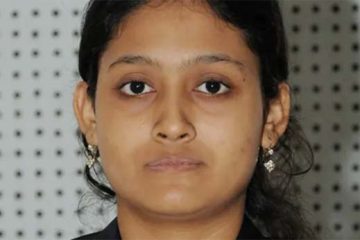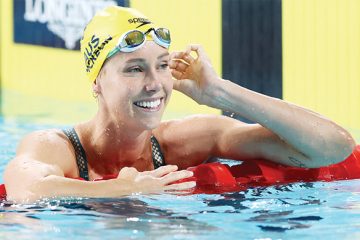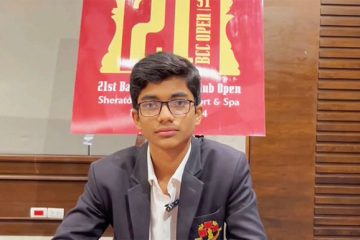In the whole five minutes of the prize giving ceremony he did not smile for a second. A little lip movement while singing the national anthem and that was that – Daniel Gyurta looked like an ironman during the entire ceremony. To anyone who watched an emotional South African Chad le Clos, who broke down in tears while receiving his gold medal in the previous evening, the celebration of Gyurta may appear unbecoming of a fresh Olympic gold medalist and that too with a world record.
But knowing his history it was not a surprise at all. The Hungarian struggled so much to get here that when it finally came, he had barely any feelings. An indifferent look to the gold medal after his world record of 2 minute 7.28 seconds finish in men’s 200-metre breaststroke only suggested it was long overdue for him.
Gyurta won silver in this event in Athens 2004 only at the age of 15, but could finish only as fifth four years later in Beijing. After he showed his prodigious talent in Athens, he became a media sensation in Hungary as all wanted to cash in on his fame.
He was front paged in newspapers regularly, appeared in silver screen on quite a few occasions and was invited to high profile events too, often, which many of his countrymen still blame for his unexpected fall out in Beijing.
Haraszti Adam, a Hungarian television commentator, however, said he was made victim of an American conspiracy in Beijing that cost him a deserving gold medal.
‘The semifinal of his event was scheduled in the morning and he took his preparation accordingly,’ said Adam. ‘But American wanted it to be held in their prime time and the organisers complied shifting it in the evening. It upset his preparations and he eventually finished fifth to miss out on the final.’
The unexpected failure made Gyurta more determined and made him only stronger. He won the event in two successive world championships in Rome and Shanghai in 2009 and 2011 respectively, but they hardly can be compared with an Olympic gold medal.
Hungary has a proud history in Olympic swimming, winning 22 gold medals previously in all Olympics they participated (they were not invited in 1920 Olympics for World War I and the country boycotted 1984 Olympics).
Hungary, the most successful in Olympics among the countries who never hosted it, won more gold medals than swimming only in fencing (they won 34 medals from fencing).
The country produced many swimming legend including Alfred Hajos, the first ever Olympic champion and to be among them Gyurta needed at least one gold medal in the Greatest Show on Earth.
But it was not that easy. Kosuke Kitajima of Japan won an unprecedented double in 100m and 200m breaststroke in both Athens and Beijing and he was also in London, bidding to become the first ever swimmier to win an event in three consecutive Olympics.
The Japanese legend seemed on his way when he swam first 50m in just
28.64 seconds, under world record pace, and tried to maintain that lead down the second lap but Gyurta managed to catch him.
The Hungarian made his move at the 100m turn and took the lead going into the final 50m, racing home and resisting a late challenge from local hero Michael Jamieson to take the gold and the world record.
Though it did not get him carried away, Gyurta finally showed some emotion in post-race press conference. ‘Of course I’m proud of the Olympic title. To break the world record is what makes me proudest,’ said Gyurta.
‘I managed to prove for everyone and for myself that after those devastating two years after the 2004 Olympic Games I could bounce back and do what I dreamed of since my childhood. ‘The race didn’t go particularly as I planned, but my performance was still enough for a win. I saw the British guy coming pretty fast in the finish but I could prevail,’ he said.
He, however, promised the realisation of the long cherished dream will not change him much. ‘The only thing it will change is my cabinet at home,’ said a determined Gyurta.
-With New Age input





